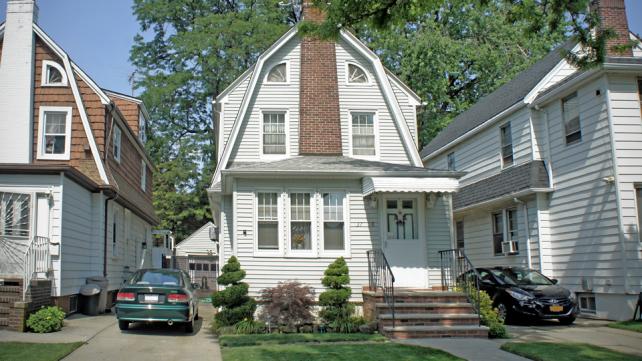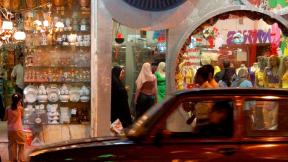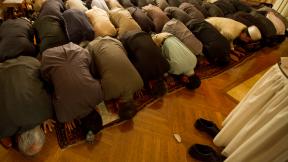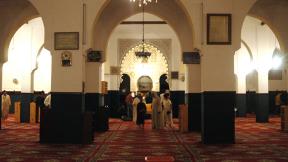
Before you bite into that tasty Iftar morsel this Ramadan, remember Zachary Abdul Rahman.
The single father of five “went from middle class to poverty in just three months,” noted the Chicago Tribune in a special reportentitled “Our Hidden Poor” in December 2007.
“I’ve literally worn the same clothes over a period of years. If it fits, I’ll keep wearing it. That lets me get them clothes and uniforms for school,” he told the newspaper. Four of his five children attended an Islamic school at the Rockford Islamic Center in Illinois when the article was written, and it was there that he slept during the day after becoming homeless the fall of that year. In the evenings, he would leave for his job on the assembly line for a Chrysler parts supplier, while his children slept at a babysitter’s house.
Abdul Rahman had started off in Atlanta, working in computer-aided design for a fast-food restaurant. But once this temporary work ended and the project fell through, he lost his job. That was what made him move to Rockford, his childhood home, in search of support from family and work.
It’s become a cliché to talk about the incredible indulgence we allow ourselves in Ramadan, particularly with food. The irony of fasting all day, claiming to empathize with the hungry, then overeating during Iftar. The dollars spent on lavish fast-breaking spreads, the calories consumed, the sheer indulgence of it all.
It’s an indulgence that affects our relationship with Allah, our bodies, and our neighbors.
The consumption of artery-clogging, heartburn-inducing fried foods, syrup-dripping desserts, with few healthy alternatives translates into post-Iftar sluggishness, not to mention high cholesterol and a recipe for a future heart attack. This leads to difficulty performing Taraweeh prayers. Ever caught yourself falling asleep during these special acts of worship? Consider what you’ve consumed when breaking your fast that evening and you will most likely find it was far from healthy or eaten in moderation.
Prophet Muhammad, peace and blessings be upon him, said: "No human ever filled a vessel worse than the stomach. Sufficient for any son of Adam are some morsels to keep his back straight. But if it must be, then one third for his food, one third for his drink and one third for his breath." (Ahmad, Tirmidhi, Nasai, Ibn Maajah).
Imam Shafii’, one of Islam’s greatest scholars, reportedly said that "I have not filled myself in sixteen years because filling oneself makes the body heavy, removes clear understanding, induces sleep and makes one weak for worship."
Training our bodies to worship God, which is the very purpose of our existence (Quran 51:56), means trying to avoid those things that take us away from it. This includes overeating during and outside of Ramadan.
But how does the indulgence affect our neighbors? Going back to Zachary Abdul Rahman, perhaps we can feel a sense of shame knowing that a father in our country, perhaps even our state, city or neighborhood, is struggling to keep his family afloat while just miles away, we spend abundantly to fill our stomachs with what is neither necessary, nor healthy.
We have truly lost the spirit of Ramadan if we ignore the fact that one in six children in the United States do not know where their next meal is coming from, while we sit counting the minutes, watching the clock to know when we can finally break our fast.
Alhamdu lillah, Abdul Rahman’s story ended on a hopeful note: by the end of that year, he had married a Muslim woman in Michigan and was able to move himself and his children into her home in Grand Rapids. He was pursuing a degree in computer systems and looking for a new factory job. His hard work, dedication, and optimism paid off. But in an economy where eight million jobs have been lost in the last two years, there is little guarantee of stable employment for most people. Like Abdul Rahman, how many will spiral into a descent of poverty, homelessness and want in a span of just weeks?
So this Ramadan, let us all remember Brother Zachary, not just to fulfill our Islamic duty to those in need, but to remember our duty to our bodies and to our neighbors.








Add new comment